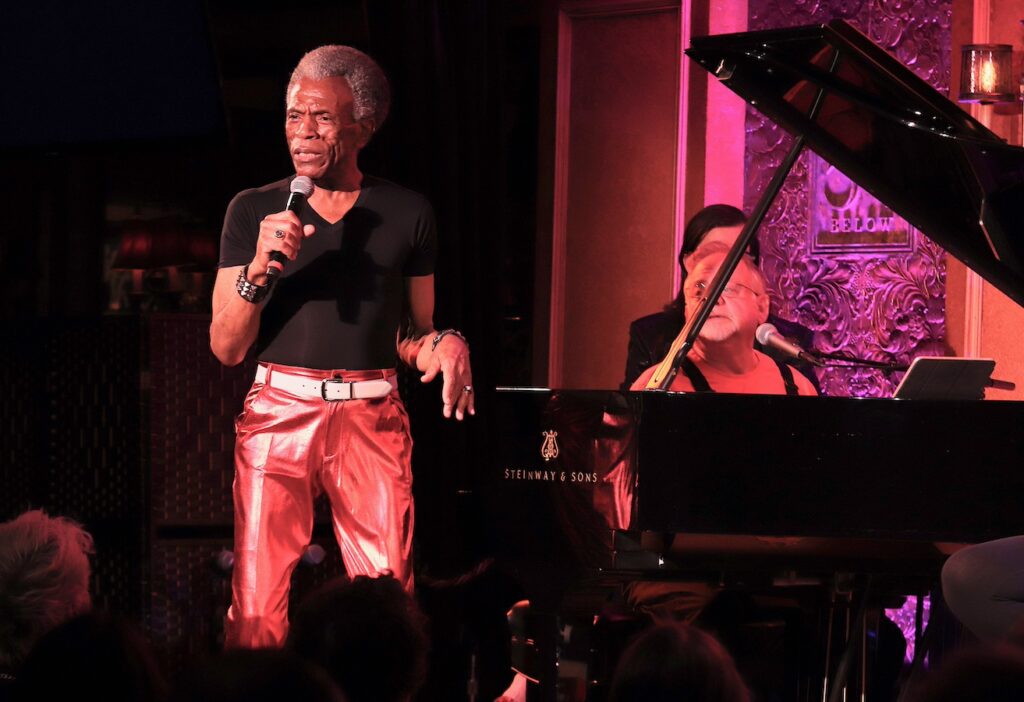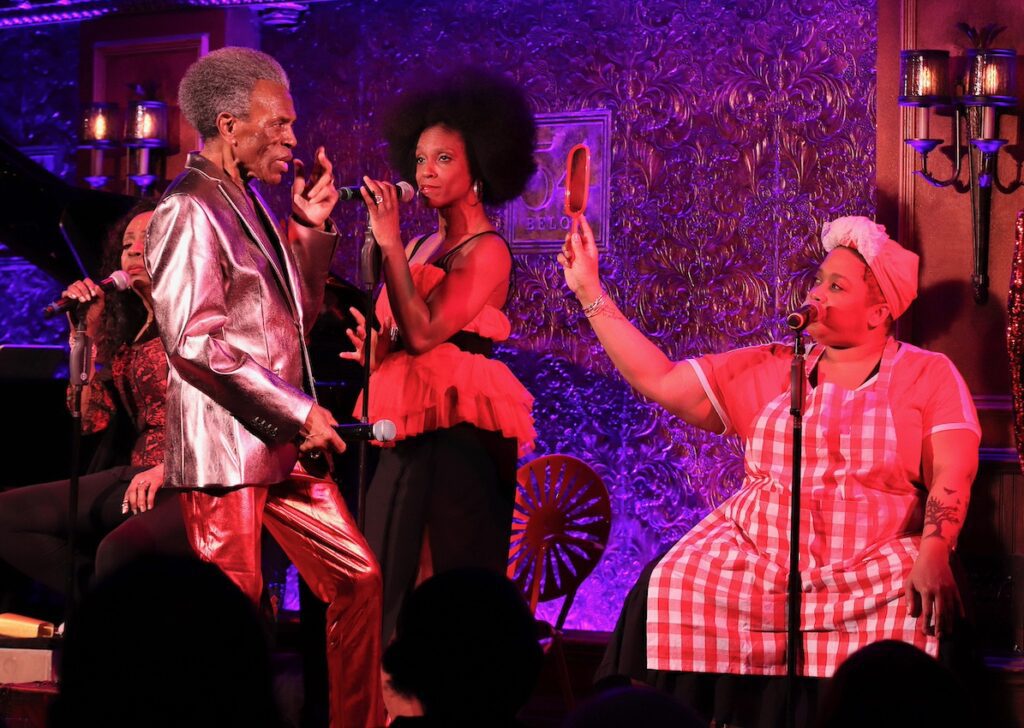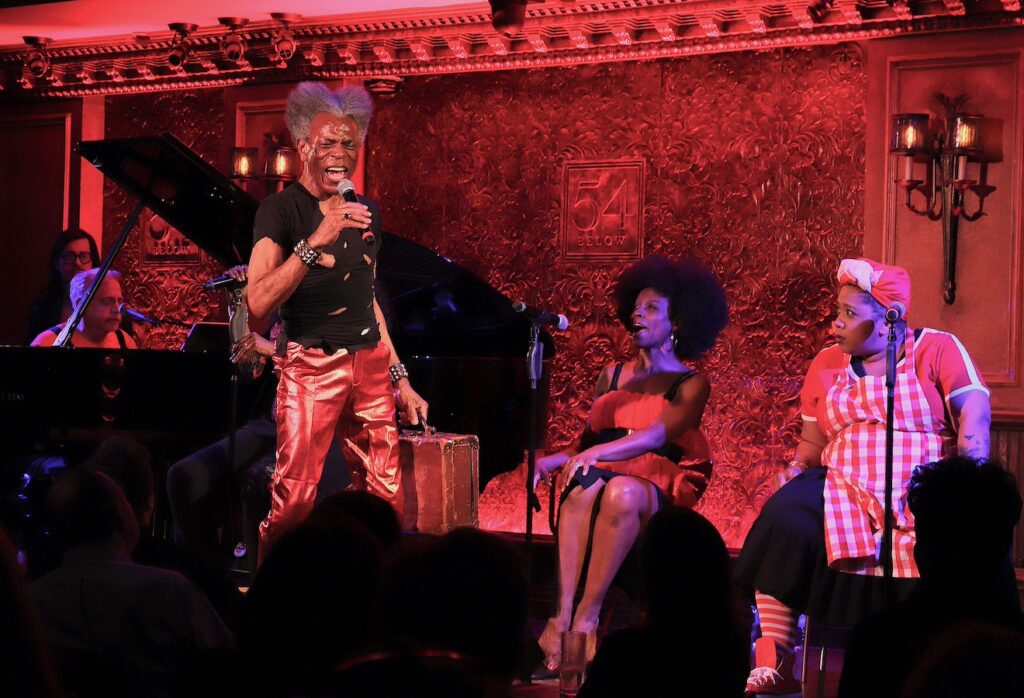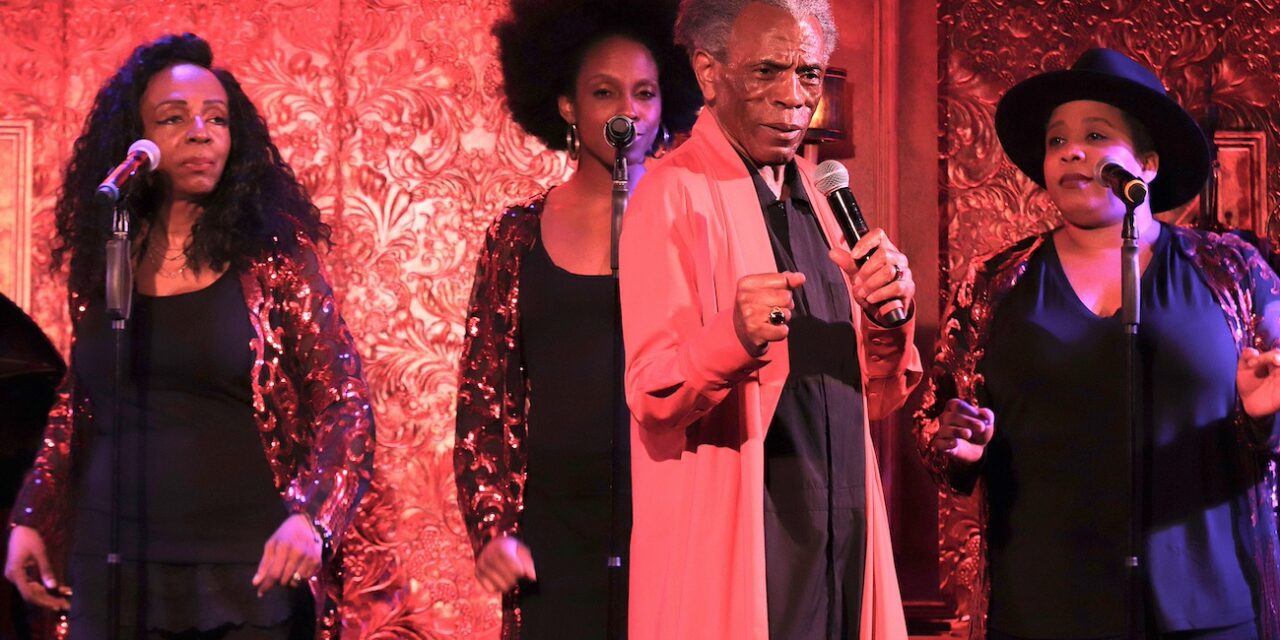Cabaret Review by Marilyn Lester . . . .
No matter the vehicle, actor-singer-producer André De Shields can be depended upon for ultra-high energy entertainment coupled with intelligence, relevance, and philosophical musings. And, of course, there will be the dramatic ventures, often reaching boundless proportions. In this iteration of De Shields’ 1984 Haarlem Nocturne (using the old Dutch spelling of “Harlem”)—which was performed for five days this past week at 54 Below—all of these ingredients were present; and 40 years on, the 78-year old historian and storyteller has even more to say, with four decades of experience behind him. As the introductory music was played—“Harlem Nocturne” (Earle Hagen) and “Love in the Morning” (Steven Lemberg)—and theatrical entrances had been made, De Shields discoursed on the concept of “ubuntu,” forcefully engaging the audiences as a preacher would at a tent meeting. Thus was the audience as congregation apprised that, per this West African philosophy, all is one, encapsulated in the phrase/mantra “I am because we are.”

Then it was on to a high-energy celebration of love, life, and the Universe, with “New York Is a Party,” written by Broadway luminary, composer, pianist, and music director Marc Shaiman. That party involved not only De Shields but three kick-ass vocalists: Kimberly Marable, Crystal Monee Hall, and Freida Williams—“The Ladies.” Each of these singers was a major force in the show, singly, in duet, or as a trio—more than backups, but partners in the Haarlem Nocturne experience. Like Shaiman, Williams was in the original 1984 cast. That presentation stemmed from a production at La Mama. It then opened at the nightclub cum theater, The Latin Quarter, running for 49 performances between November 18 and December 30, 1984; the show was envisioned as an homage to Black music and artistry. Haarlem Nocturne had another outing in 1994 at New Jersey’s Crossroads Theater. This current adaptation for 54 Below maintained the show’s theatrical roots—all areas of the club were used as a playing space (beyond its stage), complete with exits and entrances, props, and costume changes, all conceived by De Shields.


What has remained consistent across the production history of Haarlem Nocturne is the point it makes in celebrating and honoring the Black experience. It’s a point that was often missed by many past reviewers of the show who just didn’t “get it.” What was “it?” What was missed? That De Shields is a risk-taking showman with a well-thought-out socio-political agenda. The actor has always made a statement with his shows. He’s also very aware that he’s an entertainer first, and that sometimes lessons have to be presented like an iron fist in a velvet glove. Those who’ve missed these realities have also missed that De Shields has long followed the tradition of the stage as a forum for social commentary, protest, and political reform.
The curated music in Haarlem Nocturne is from well-known songwriters and those whose histories are in the shadows. De Shields has also composed some of the numbers, as well as written or adapted the lyrics to still others. Shaiman’s superb arrangements are in the R&B, soul, funk, and gospel groove. One of the highlights of Haarlem Nocturne was a gut-bucket blues, “Water Faucet Blues” (Micki Grant), delivered by Hall in the tradition of Bessie Smith and Ma Rainey. She categorically brought down the house. Of the better-known tunes, “Sweet Dreams (Are Made of This)” (Lennox, Stewart) with “What Becomes of the Broken Hearted” (Weatherspoon, Rise, Dean) was a barn-burner medley sung by “The Ladies.” Likewise, a medley of popular hits in “Girls’ Night Out” featured the trio in another roof-raising performance. De Shields’ “Street Corner Symphony Rap” was a distillation of all that the performer stands for and sought to communicate via the show.


A sweet moment came with a duet between De Shields and Shaiman with Stephen Sondheim’s “Old Friends.” The rendition began slowly, then picked up tempo and cleverly inserted musical commentary on the very modern concept of “wokeness” as well as reaffirming the starting point of ubuntu. A big finish to Haarlem Nocturne tied the bow on the box of gems and tasty nuggets that had been dispensed throughout this thrilling evening . . . and that was another way to say “ubuntu” in De Shields’ own L-O-V-E. Love is what it’s about, according to this modern-day griot: “When you love somebody, you will be loved in return.” A serious artist with a wicked, wise, and wry sense of self and humor, how much better does it get than when a man who has played a god (Hermes in Hadestown) metaphorically sprinkles love dust on you?
Note: also aiding the production of Haarlem Nocturne were associate music director Drew Wutke and Samuel Moses Jones, stage manager/personal assistant.
André De Shields Celebrates the 40th Anniversary of Haarlem Nocturne was performed February 20-24 at 54 Below (254 West 54th Street, between Broadway and Eighth Avenue). www.54Below.org
Photos: Lia Chang
Cover Photo: Freida Williams, Kimberly Marable, André De Shields, Crystal Monee Hall


















